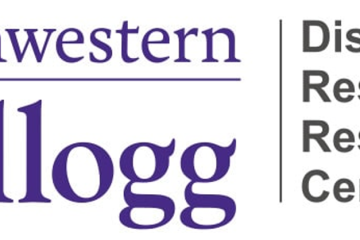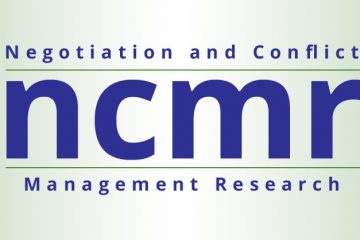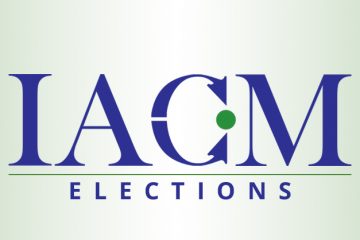NCMR 14(3) Table of Contents | August 2021 Special Issue: Global Conflict and Local Resolutions

August 2021 Special Issue: Global Conflict and Local Resolutions
with Chin-Chung Joy Chao and Ming Xie (contributing guest editors)
Ha, L., Yang, Y., Ray, R., Matanji, F., Chen, O., Guo, K., & Lyu, N. (2021). How US and Chinese media cover the US-China trade conflict: A case study of war and peace journalism practice and the foreign policy equilibrium hypothesis. Negotiation and Conflict Management Research, 14(3), 131-152. https://doi.org/10.34891/w62z-5g51
Abstract: This article examines the news coverage of a nonmilitary conflict: The US–China trade conflict by major news media outlets in the USA and China using the war and peace journalism framework. Role in the conflict as initiator/responder, medium difference, the press role in each press system, and partisanship of news media were hypothesized to affect the war and peace journalism practice. Moreover, the trade conflict was divided into three stages to test the applicability of the “foreign policy market equilibrium hypothesis” by analyzing the changes in the uses of sources and presence of competing frames over time. US news media were found to employ more war journalism and less peace journalism than their Chinese counterpart. They also had much lower coverage of the conflict than their Chinese counterpart. Newspapers were more likely to use war journalism than television. US partisan liberal media selectively supported and opposed the US government trade policy.
Roman, N., Young, A., & Perkins, S. C. (2021). Displaced and invisible: Ukrainian refugee crisis Coverage in the US, UK, Ukrainian, and Russian newspapers. Negotiation and Conflict Management Research, 14(3), 152-169. https://doi.org/10.1111/ncmr.12193
Abstract: The Ukrainian–Russian military conflict that began in 2014 displaced nearly two million people. This study is one of the first to compare the news media coverage of Ukrainian displaced persons in the UK, US, Ukrainian, and Russian elite press as the crisis unfolded. This analysis looks at frames, sources, and demographic characteristics used in the coverage of displaced people. The findings of this study indicate that the coverage of displaced Ukrainians varied from country to country in elite newspapers, and the descriptions did not always point to classic markers of crisis, such as emotional turmoil. English-language newspapers were more likely to focus on statistics, while Ukrainian and Russian press devoted more attention to various aspects of migrants’ resettlement. The “security threat” and “crime” frames, which are often used in media coverage of refugees, were nearly non-existent in the articles about displaced Ukrainians.
Wiebelhaus-Brahm, E. (2021). Global transitional justice norms and the framing of truth commissions in the absence of transition. Negotiation and Conflict Management Research, 14(3), 170-186. https://doi.org/10.1111/ncmr.12194
Mousseau, D. Y. (2021). Globalization and the prevention of ethnic wars at the local level: A cross-country analysis. Negotiation and Conflict Management Research, 14(3), 187-206. https://doi.org/10.34891/n2jt-1926
Abstract: This study seeks to investigate how economic globalization and the rule of law affect the onset of ethnic war at the local level. While several empirical studies have explored the roles of globalization and the rule of law on large-scale civil war, most ethnic wars do not reach the intensity of civil war. As a consequence, we have a weak understanding of how globalization and rule of law affect the risk of ethnic war. This study links the literatures on ethnic war, globalization, and the rule of law, and examines the concomitant effects of economic globalization and rule of law on low-intensity ethnic war onsets. It is expected that both can reduce the risk of ethnic war because each constrains state power and, at the same time, enhances opportunities for ethnic inclusion. Analyses of 140 countries from 1997 to 2010 show that both economic globalization and the rule of law significantly lower the risk of low-intensity ethnic war, and the discrimination of ethnic populations increases this risk. To facilitate peace at local levels, international policy makers and states should promote global economic integration, the rule of law, and ethnic inclusion.
Arora, P., Hoeller, M. S., Scalone, E., Okumura, T., & Peterson, N. (2021). The impact of economic uncertainty and trust on cooperation in environmental dilemmas across cultures. Negotiation and Conflict Management Research, 14(3), 207-230. https://doi.org/10.34891/ra4n-pj45
Abstract: Climate change has resulted in frequent and intense droughts and floods–experienced respectively as contexts of certain loss and uncertainty–by farmers and agribusinesses. Such extreme water events, along with normal rainfall–experienced as certain gain-pose environmental dilemmas. In three studies across five countries, we examined the impact of outcome uncertainty on choices in environmental dilemmas. Cooperation was lowest in certain loss (droughts) and higher in certain gain (normal rainfall) in Study 1, a qualitative field study in Argentina. These results were experimentally replicated in the U.S. in Study 2. Study 3 empirically examined cooperative choice in India, Japan, Spain, and the U.S., replicating patterns for drought and normal rainfall. When the outcome was uncertain (floods), however, culture appeared to moderate cooperation. Two levels of trust (global and local) were also considered. Local trust was a significant predictor of cooperation. Potential mechanisms, and implications are discussed.
Featured Article 14(3) Article and Authors
The Impact of Economic Uncertainty and Trust on Cooperation in Environmental Dilemmas Across Cultures
Poonam Arora, Marc Stefan Hoeller, Eric Scalone, Tetsushi Okumura, and Nicole Peterson
Highlights: The key features of Arora and her colleagues’ article include the following:
- Environmental dilemmas posed by climate change, which require choices be made under conditions of uncertainty, have not been well researched.
- Across five countries, there is greater willingness to sacrifice some short-term gain for cooperation with others when the outcome is likely to be positive, compared with when the outcome is likely to be a certain loss.
- When faced with uncertainty of outcome, however, choices are constrained by the specific local context of the decision maker
- For policies addressing global environmental dilemmas to be effective, local conceptualization of uncertainty and trust need to be considered.
 Poonam Arora is the Louis F. Capalbo Professor and Chair of the Management Department at Manhattan College, and a Research Scientist at AC4, Earth Institute, Columbia University. Her research explores sustainability in dynamic socio environmental-economic systems. Specifically, she examines how individuals, organizations, and communities manage conflicting goals to ensure long-term economic, social and environmental sustainability. Her research has been published in management, psychology, economics, and sustainability journals.
Poonam Arora is the Louis F. Capalbo Professor and Chair of the Management Department at Manhattan College, and a Research Scientist at AC4, Earth Institute, Columbia University. Her research explores sustainability in dynamic socio environmental-economic systems. Specifically, she examines how individuals, organizations, and communities manage conflicting goals to ensure long-term economic, social and environmental sustainability. Her research has been published in management, psychology, economics, and sustainability journals.
 Marc Stefan Hoeller is a Manhattan College alumnus currently working as a Strategy Consultant for a global management consulting firm in Germany. His research interests include understanding the role of cognitive biases in choices made by organizations that impact the triple bottom line and multimotive situations like social dilemmas.
Marc Stefan Hoeller is a Manhattan College alumnus currently working as a Strategy Consultant for a global management consulting firm in Germany. His research interests include understanding the role of cognitive biases in choices made by organizations that impact the triple bottom line and multimotive situations like social dilemmas.
 Eric Scalone is a Manhattan College alumnus currently working at a private equity firm where he advises and underwrites various types of transactions in the Media and Entertainment industries. His research interests include understanding the role of context on choices in real world dilemmas.
Eric Scalone is a Manhattan College alumnus currently working at a private equity firm where he advises and underwrites various types of transactions in the Media and Entertainment industries. His research interests include understanding the role of context on choices in real world dilemmas.
 Tetsushi Okumura is a professor of Organizations and Management at Tokyo University (Tokyo, Japan), Faculty of Business Administration. His research interests include negotiation and managerial behavior, dispute resolution, and land dispute settlements in social infrastructure developments. His research has appeared in the Academy of Management Journal, Journal of Applied Psychology, Negotiation Journal, Journal of Experimental Psychology, Management and Organization Review, and International Studies of Management & Organization Journal.
Tetsushi Okumura is a professor of Organizations and Management at Tokyo University (Tokyo, Japan), Faculty of Business Administration. His research interests include negotiation and managerial behavior, dispute resolution, and land dispute settlements in social infrastructure developments. His research has appeared in the Academy of Management Journal, Journal of Applied Psychology, Negotiation Journal, Journal of Experimental Psychology, Management and Organization Review, and International Studies of Management & Organization Journal.
 Nicole Peterson is an Associate Professor of Anthropology at UNC Charlotte and has examined Charlotte area food systems, how people adapt to changing climates and agricultural systems, and community-oriented sustainability efforts. Dr. Peterson has published in Sustainability, Climate and Development, Conservation and Society, Development and Change, Sustainability: Science, Policy, and Practice, and most recently in Culture, Agriculture, Food and Environment.
Nicole Peterson is an Associate Professor of Anthropology at UNC Charlotte and has examined Charlotte area food systems, how people adapt to changing climates and agricultural systems, and community-oriented sustainability efforts. Dr. Peterson has published in Sustainability, Climate and Development, Conservation and Society, Development and Change, Sustainability: Science, Policy, and Practice, and most recently in Culture, Agriculture, Food and Environment.


